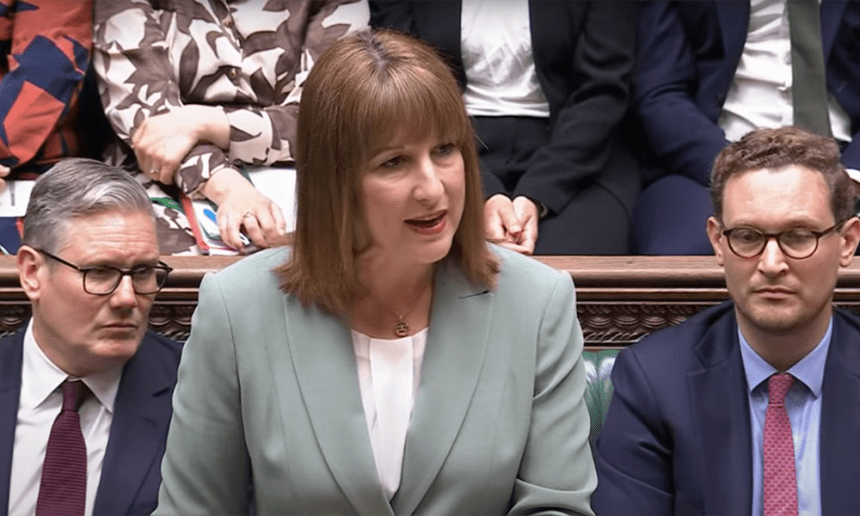
The UK Government’s 2025 Spending Review has delivered a complex message to the environmental sector: major capital commitments for clean energy and carbon capture sit in stark contrast to sharp operational cuts to the very department charged with environmental stewardship.
While Chancellor Rachel Reeves pledged a real-terms increase of 2.3% in total departmental spending across the review period, the Department for Environment, Food and Rural Affairs (Defra) faces one of the steepest real-terms reductions—an average 2.7% cut per year to its day-to-day budget.
That equates to a fall in resource spending from £4.8 billion in 2025–26 to £4.7 billion by 2028–29, with only the Foreign, Commonwealth and Development Office and Department for Transport seeing deeper operational budget reductions.
This places Defra among the fiscal “losers” of the review, raising concerns from legal experts, environmental advocates, and industry leaders alike.
Circular Economy Overlooked
For the waste management and recycling sector, the Spending Review delivered few concrete commitments. Despite ongoing efforts to position the circular economy as a pillar of sustainable growth, the review contained only a passing reference to “simpler recycling” within local government settlements.
The settlement also includes funding for local authorities to deliver Simpler Recycling as part of the Collection and Packaging waste reforms, which is aimed at helping to stimulate investment in recycling services across the UK. Local authorities will continue to receive additional income through the Extended Producer Responsibility scheme for packaging. However, there was no specified funding for these changes—nor for the infrastructure overhauls many councils will require.
We welcome a commitment to sustainable growth, but recycling infrastructure must be a strategic priority
Instead, the Review stated that authorities “will continue to receive additional income through the Extended Producer Responsibility (EPR) scheme for packaging.” The extent to which this EPR funding will be ringfenced or integrated into general council finances remains uncertain.
Capital investment across Defra also appears skewed. While the department receives £16 billion over the Spending Review period—a real-terms annual increase of 2.5%—the bulk of this funding is directed toward farming subsidies, flood defence projects, and nature recovery. Notably absent are any significant capital allocations for waste infrastructure or circular economy initiatives.
As David Palmer-Jones, CEO of recycling firm CIRQLR, put it: “We welcome a commitment to sustainable growth, but recycling infrastructure must be a strategic priority. Giving waste a second life is not just environmental—it’s economic resilience.”
Defra Cuts Raise Delivery Risks
Defra’s operational reduction arrives at a critical moment for the department. It is tasked with implementing some of the most significant waste policy changes in decades—including Simpler Recycling, EPR, Deposit Return Schemes, and the integration of waste into the UK Emissions Trading Scheme.
Without clear definitions or communication, a rapid withdrawal of subsidies risks repeating past errors
Legal experts have flagged potential implementation risks. Maddie Dunn, Legal Director at Charles Russell Speechlys, specifically called out the fragility of the Environmental Land Management Schemes (ELMs), where funding is being redirected away from subsidies that fail to show a “return on investment.”
“This isn’t objectionable in principle,” Dunn said, “but without clear definitions or communication, a rapid withdrawal of subsidies risks repeating past errors, like the sudden SFI suspension earlier this year.”
The Spending Review confirms Defra will pursue £144 million in “technical efficiencies” and at least 5% in savings by 2028–29. It also plans to invest over £300 million in digital transformation to reduce reliance on contractors. But whether this internal reorganisation will help or hinder policy delivery remains an open question.
Big Wins for Industrial Decarbonisation
In contrast, the energy and decarbonisation sectors received a clearer boost. The government allocated £9.4 billion in capital funding for Carbon Capture, Usage and Storage (CCUS), including support for the HyNet and East Coast Clusters.
Dave Richardson, Chair of the North West Hydrogen Alliance, welcomed the backing but stressed the need for a “clear, long-term framework” for hydrogen deployment.
Energy-from-waste operator enfinium announced plans to invest £200 million in carbon capture at its Parc Adfer facility in North Wales, citing the government support as key to turning the site into one of the largest carbon removal projects in the UK.
The broader energy landscape includes £14.2 billion for Sizewell C nuclear power and funding for clean heat, electric vehicles, and energy efficiency under the Warm Homes Plan. But these initiatives focus on generation and decarbonisation—not on integrating circular economy principles into industrial growth.
Local Authority Funding: Welcome but Unclear
The Spending Review also confirmed a £3.4 billion increase in core grant funding to local authorities by 2028–29. This represents a 3.1% real-terms annual increase and includes funding streams for local transport, walking and cycling infrastructure, and air quality improvements.
However, the Chartered Institute of Environmental Health (CIEH) cautioned that further detail is needed on how this funding will reach environmental health teams.
President Mark Elliott stressed: “The involvement of environmental health professionals will be vital… but clarity is still needed from the Government on how teams across the country will be supported.”
A Mixed Verdict
While the Spending Review has been cautiously welcomed for its industrial and energy commitments, the environmental policy community remains sceptical.
The lack of dedicated funding for waste infrastructure, combined with operational cuts to Defra, could create a bottleneck in the UK’s circular economy transition.
Many in the sector are calling for urgent clarification on delivery mechanisms, particularly for local authorities expected to implement system-wide changes without ringfenced support.
As Maddie Dunn said, “Policy intentions mean little without practical clarity. Fast-track changes without communication only add instability. We’ve seen it before. We can’t afford to see it again.”
The post Defra hit with major cuts in 2025 Spending Review appeared first on Circular Online.
Leave a Reply